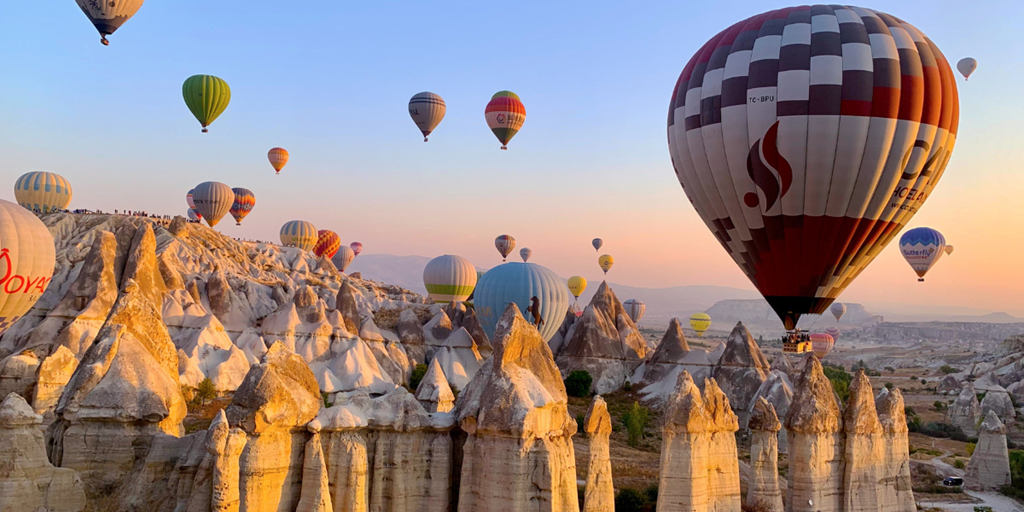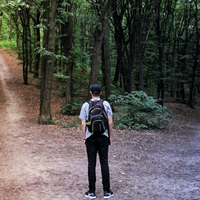The world of travel is evolving at a breakneck pace, and the latest technology driving this revolution is Artificial Intelligence. From automating customer service through chatbots to predicting traveler behaviour and new tourism trends, AI is transforming the way we plan, book, and experience our trips.
Travel companies are becoming more efficient in serving their customers and providing better experiences. A study by the World Travel & Tourism Council suggests that AI and Machine Learning could result in a $1 trillion boost in the travel and tourism sector's global economic activity by 2025, due to the adoption of AI-enabled features such as smart personalization, automated customer service, voice recognition, virtual reality, and facial recognition. In this article, we will go over some of the main uses of AI within the travel sector in 2023.
AI and “Sleep Tourism”
In the post-pandemic era, a new trend has emerged among luxury hotels, which attracts guests for the sole purpose of resting and sleeping in perfect conditions.
As the COVID-19 pandemic and economic crisis continue, a growing number of people are struggling with sleeping problems. A recent study published in the Journal of Sleep Medicine found that out of 2,500 adults surveyed, up to 40% reported a significant decline in their sleep quality due to the pandemic.
One of the examples of this emerging trend is Park Hyatt in New York, which introduced six incredible "sleep suites" in partnership with Bryte, an A.I. mattress start-up. These suites feature 90 amazing cushions that adjust to your body's pressure points, control the temperature, and track your sleep statistics. The hotel wanted to enhance its offerings in the post-pandemic era and prioritize a prime sleeping environment. The suites were unveiled in January 2022 and are just one of the many innovative initiatives the hotel has launched to enhance the sleep experience for its guests. And with the hotel's award-winning spa and wellness program, it's the perfect place to rejuvenate and unwind.
Chatbots planning your travel itenirary
One of the most significant advancements of AI in the travel industry is personalized recommendations and trip planning. Travel companies can now use AI to analyze customers' data, preferences, and behavior to provide tailored recommendations for destinations, activities, and accommodations.
With the help of conversational AI search engines, such as Google's Bard or Bing, users can interact with a search engine to find tailored travel itineraries. For example, when asked for "trip ideas to Paris," Bing could produce a beginner's itinerary based on the user's interests. However, although AI can assist with trip-planning, experts have warned that it does not possess human expertise, and its reliability and development need to be limited.
Another example is of implementing AI throughout the entire customer journey is Airbnb. Airbnb developed a machine learning platform to classify and tag message intentions, which is used to automatically respond to guest inquiries, making the communication a lot faster. The company also uses deep learning algorithms to identify rooms and key features in photos, in order to match potential guests with properties that are aligned with their style and amenities that they are looking for.
To filter potential guests, Airbnb created an AI program that checks guest profiles to see if they fit the standards of trustworthy guests and also tracks visitor history to identify people who may have violated Airbnb rules in the past, which also encourages the home owners to rent out their places and makes them feel more secure. Finally, Airbnb uses machine learning-based search ranking to highlight the most popular attractions in the area on its website.
Streamlining operations and enhancing security
AI is revolutionizing the travel industry, not only making it more secure but also enhancing efficiency and convenience. Airports are increasingly relying on facial recognition technology to identify passengers and improve security, providing a seamless experience that reduces the risk of identity fraud. This innovative technology matches a passenger's face to their identification documents, thereby ensuring the safety and security of the airport.
AI is also helping airlines prioritize passenger safety by utilizing predictive maintenance powered by AI. By analyzing data from aircraft sensors, airlines can predict when maintenance is needed, preventing potential issues before they arise and ensuring the safety of passengers and crew. Of course, this type of technology should not be considered a substitute for consistent monitoring of the aircraft by professionals.
In addition, Airlines are leveraging AI to optimize flight schedules, reducing the time planes spend on the ground and maximizing their usage. This results in considerable fuel cost savings, reduced delays, and improved efficiency. AI-powered baggage tracking systems are also being used to track luggage from check-in to loading, minimizing the risk of lost luggage and improving the overall customer experience.
Predictive pricing of hotels and airlines
You're planning your dream vacation, but you're worried about the cost? That is where predictive pricing plays a big role. It is a strategy that uses advanced algorithms to analyze real-time market data and consumer behavior to set prices that are optimal for both you and the travel company.
This innovative approach is being used in the travel industry to adjust prices for flights, hotels, and car rentals based on factors such as time of year, demand, and availability. With the help of AI, travel companies can now take predictive pricing to the next level by analyzing vast amounts of data to predict future demand and pricing trends. These algorithms consider factors like weather, events, and even social media trends to make accurate predictions.
This system allows travel companies and hotels to maximize profits, and also help reduce waste by ensuring hotels and airlines operate at full capacity.
What are the challenges of using AI in the travel industry?
The travel industry is on the edge of a technological revolution thanks to the integration of Artificial Intelligence (AI). However, with great advancements come significant challenges that require attention to ensure their success. First, data quality and availability is a significant hurdle as travel data can be inconsistent, leading to less reliable AI models. Another challenge is privacy concerns, especially with the use of facial recognition technology. Integrating. Lastly, developing effective human-AI collaboration models is crucial to ensure AI enhances rather than replaces human decision-making. Addressing these challenges is vital to implementing AI in the travel industry successfully.










 Angry Nerds (Poland)
Angry Nerds (Poland) Angry Nerds (USA)
Angry Nerds (USA) Angry Nerds (Canada)
Angry Nerds (Canada)



